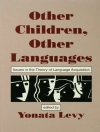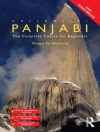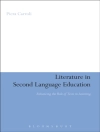Winner of the 2022 Ab Imperio Award
Hoping to unite all of humankind and revolutionize the world, Ludwik Zamenhof launched a new international language called Esperanto from late imperial Russia in 1887. Ordinary men and women in Russia and all over the world soon transformed Esperanto into a global movement.
Esperanto and Languages of Internationalism in Revolutionary Russia traces the history and legacy of this effort: from Esperanto”s roots in the social turmoil of the pre-revolutionary Pale of Settlement; to its links to socialist internationalism and Comintern bids for world revolution; and, finally, to the demise of the Soviet Esperanto movement in the increasingly xenophobic Stalinist 1930s. In doing so, this book reveals how Esperanto – and global language politics more broadly – shaped revolutionary and early Soviet Russia.
Based on extensive archival materials, Brigid O”Keeffe”s book provides the first in-depth exploration of Esperanto at grassroots level and sheds new light on a hitherto overlooked area of Russian history. As such,
Esperanto and Languages of Internationalism in Revolutionary Russia will be of immense value to both historians of modern Russia and scholars of internationalism, transnational networks, and sociolinguistics.
Associate Professor Brigid O’Keeffe
Esperanto and Languages of Internationalism in Revolutionary Russia [PDF ebook]
Esperanto and Languages of Internationalism in Revolutionary Russia [PDF ebook]
购买此电子书可免费获赠一本!
格式 PDF ● 网页 266 ● ISBN 9781350160668 ● 出版者 Bloomsbury Publishing ● 发布时间 2021 ● 下载 3 时 ● 货币 EUR ● ID 7821768 ● 复制保护 Adobe DRM
需要具备DRM功能的电子书阅读器












